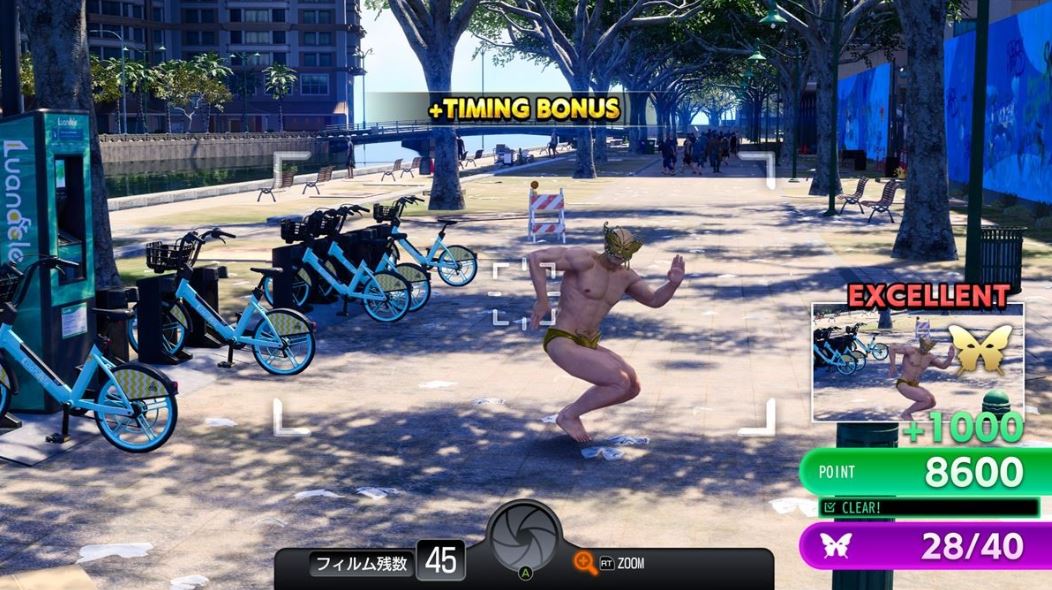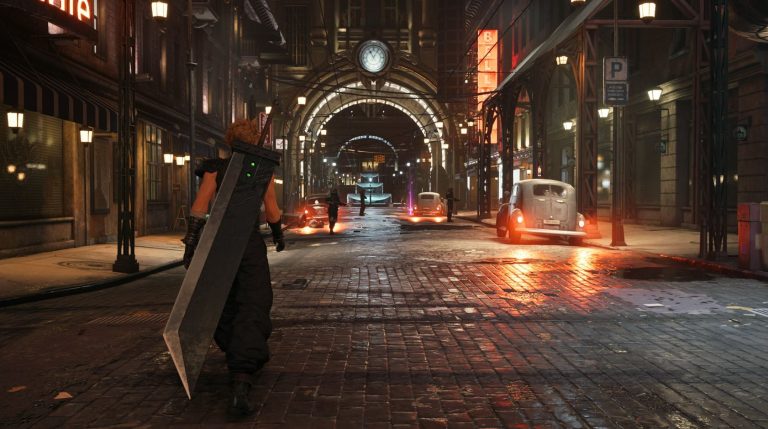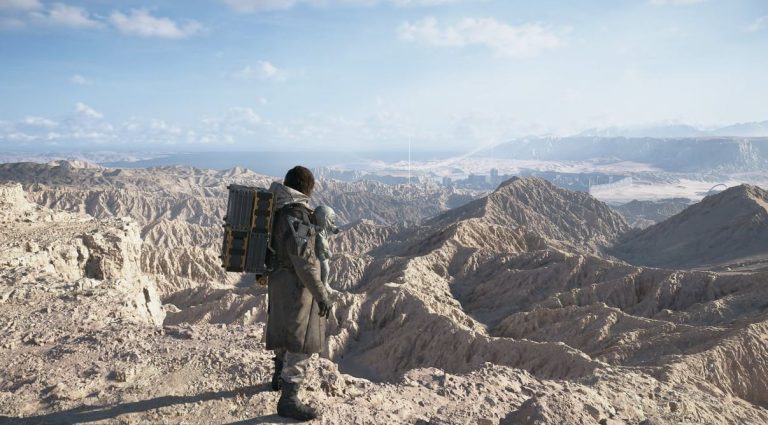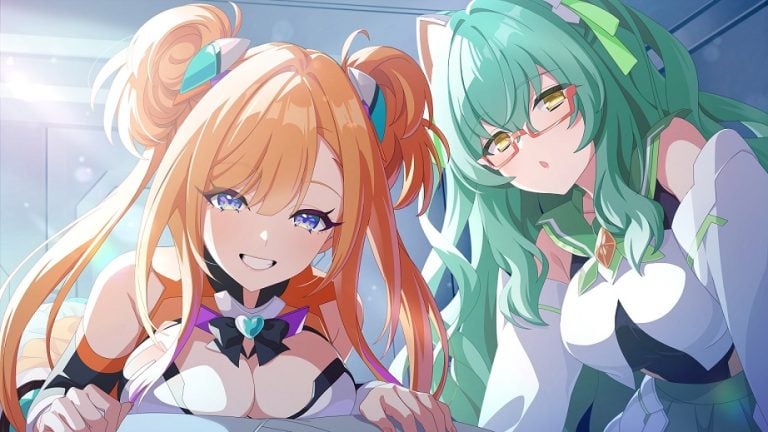Like a Dragon: Infinite Wealth, the latest entry to Sega’s Like a Dragon series, sold over one million units worldwide within a week of its release, breaking the franchise’s past records. But the grander the scale of a title, the easier it is for the individual efforts behind it to go unnoticed. That’s why we collaborated with SEGA to interview members of each section of RGG Studio and find out all there is to know about their meticulous work on the Like a Dragon franchise.
In this edition, we speak to Like a Dragon: Infinite Wealth’s director Ryosuke Horii and lead planner/game design supervisor Hirotaka Chiba. In Part Two, we talk to them about the specific content they created, such as the Sicko Snap minigame and the Party Chats full of middle-aged guys’ banter.
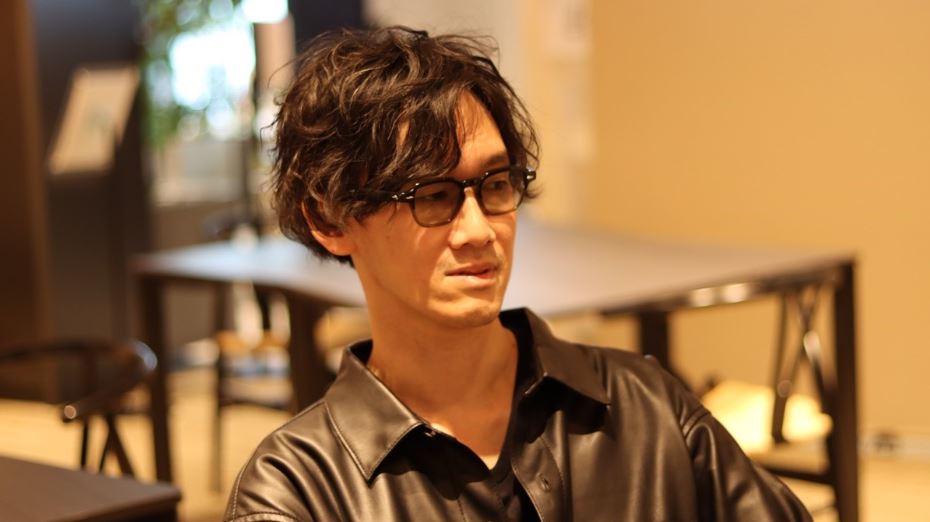
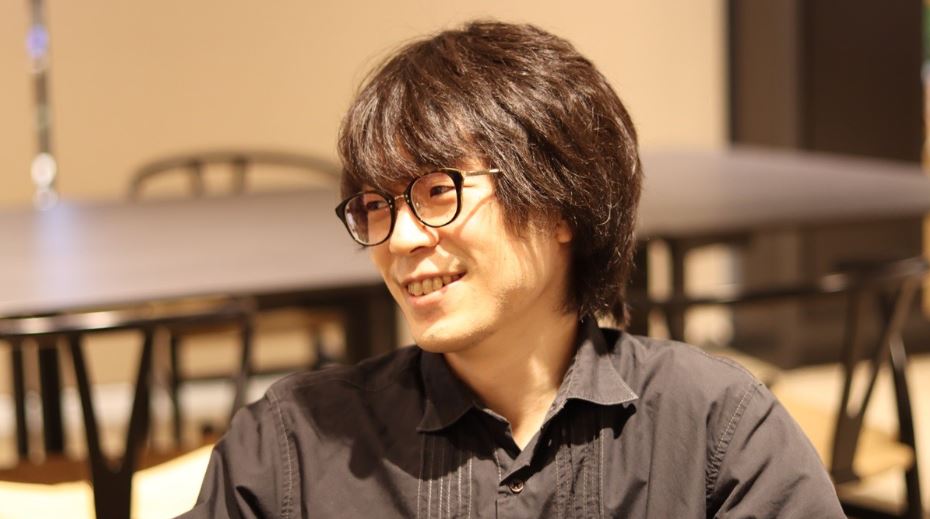
Despite how much we limited ourselves, Dondoko Island’s volume turned out tremendous
―I feel like Infinite Wealth took a different turn from past Like a Dragon titles in that it focuses on a lesser number of elaborate, large-scale minigames, rather than numerous small minigames. What was the reason for this change?
Ryosuke Horii (hereafter Horii):
The Hawaii area itself is quite large, so if we were to implement an abundance of minigames, it’s highly possible that players would unwittingly miss out on them. That’s why we decided to focus on making several large-scale mini games and making them as high-quality as possible, so that they would appeal to many players.
―So, rather than having a predetermined quota for minigames, you decide things based on each game’s setting and themes?
Horii:
That’s right. Also, whether it’s the budget or the number of available staff, our team’s resources are limited. We consider all of these factors when deciding whether to go for a large number of smaller minigames or to limit ourselves to a couple of large-scale, fun ideas. Infinite Wealth’s features, such as Dondoko Island, were clearly the kind that would grow exponentially more entertaining the more we added to them. Thus, we decided to focus on building them up into something that would deliver more of a punch than multiple, small minigames would.
―So, the planners’ job is to judge the potential of a piece of side content and adjust the scale of development accordingly.
Horii:
Exactly, it’s all about finding the right balance.
―RGG Studio’s Yokoyama and Sakamoto have made comments about Dondoko Island growing more and more content-packed “before you knew it” in past interviews, but did you not have any limitations?
Horii:
On the contrary, even after limiting ourselves, it still ended up like that (laughs). We could have made the island larger, and there were all kinds of proposals for new things to include, but after taking various factors into account, we settled on Dondoko Island’s current form.
Actually, we had a simpler game in mind for Dondoko Island at first. We initially imagined it as being about collecting resources, doing a bit of crafting and that being it, but we felt that it lacked the bizarre and unpredictable nature that is typical of the Like a Dragon series. Also, at the time, there was not enough to do during a whole day on the island.
Casual island building games are usually designed to allow players to create what they want and play at a leisurely pace. However, if you just tell players to enjoy themselves freely, there is a risk that some people won’t really know what to do. Besides, with the Palekana being in trouble, they wouldn’t be up for casual island life either (laughs).
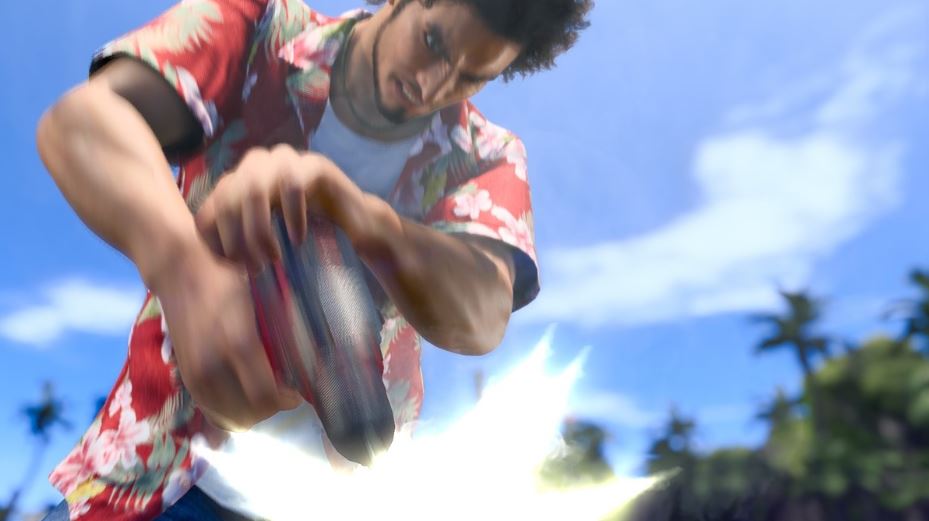
Everyone:
(laughs)
Horii:
Thus, we began to see that making the game busy would better suit Like a Dragon’s players. From there, we began tackling issues one by one, and ultimately, our solution was to introduce simulation game-like gameplay such as battles, handling customers, and earning money. This kind of light simulator-style gameplay has been well received by our players in the past and it is something they are familiar with, having played the hostess club and business management minigames. I felt that if we added simulation game elements to Dondoko Island, it would be more in the spirit of the series and different from a simple island-building game. That’s how Dondoko Island became what it is today.
―So, Dondoko Island kind of replaced, or rather, built upon the past management minigames?
Horii:
That’s right. We had originally envisioned Dondoko Island as content that would be very beneficial to game progression, like business management in Yakuza: Like a Dragon. Although all the details were not set, we had already decided on the amount of money the player could obtain if they built the island successfully.
―You mentioned earlier that you put the brakes on Dondoko Island’s expansion, but was this decided due to the schedule? Man-hours? Or was it due to some other factor?
Horii:
Obviously, it was due to schedule-related constraints too, but the most important factor was the overall balance of the game. The larger we made Dondoko Island, the more likely we were to end up with players who don’t clear the game or don’t return to the main storyline. Since Dondoko Island is ultimately just side content, we were mindful of making it feel satisfying but not too difficult, making sure to reward players with a sense of accomplishment. From there, we cut down on all elements that seemed redundant to the game design.
On the other hand, we raced against the schedule to add as many features as possible that we thought would make players happy – including various placeable items, like the Kamurocho gate, and other features like allowing players to place roads. In other words, the overall scale of Dondoko Island itself did not grow that much from the initial conception, but we spent a lot of time filling it up with items and features to make the experience as satisfying as possible.
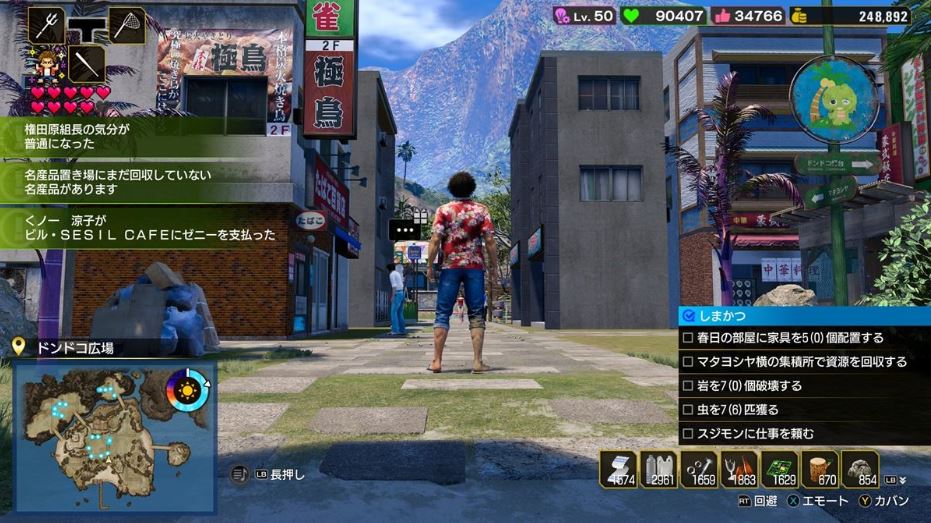
―This is just to satisfy my personal curiosity, but why did you go for harpooning rather than regular fishing? I feel like fishing is a kind of a staple activity for the genre.
Horii:
Originally, it was supposed to be regular fishing, but I felt that using a fishing rod just didn’t fit with everything (laughs). With fishing, you have to wait for a long time before you get a bite. But Dondoko Island is a busy game in which the sun goes down before you know it, so we decided to go with a harpoon to let players catch fish instantly. This approach also felt more in line with the Yakuza series.
―I see, so you considered both the tempo of the game and aesthetics.
Why Sicko Snap was a necessity for Like a Dragon: Infinite Wealth
―What did the process of creating the substories look like?
Hirotaka Chiba (hereafter Chiba):
Usually, we decide on the total number of substories within a game at an early stage. From there, we consider how much to expand the volume of each substory within the determined framework.
Horii:
That’s right, we decided on about 30 substories while in the early stages of the project. Then, we gathered various ideas and decided which to adopt. Finally, we moved on to working on their quality.
Also, we had predetermined slots within that framework – for example, how many Hawaii substories to include, how many emotional substories to include and the like. We also adjusted this as needed – for example, by adding 5 extra emotional substories when there were too many comical ones. By the way, some substories take a lot of time and effort to create, while others not so much – it’s very varied.
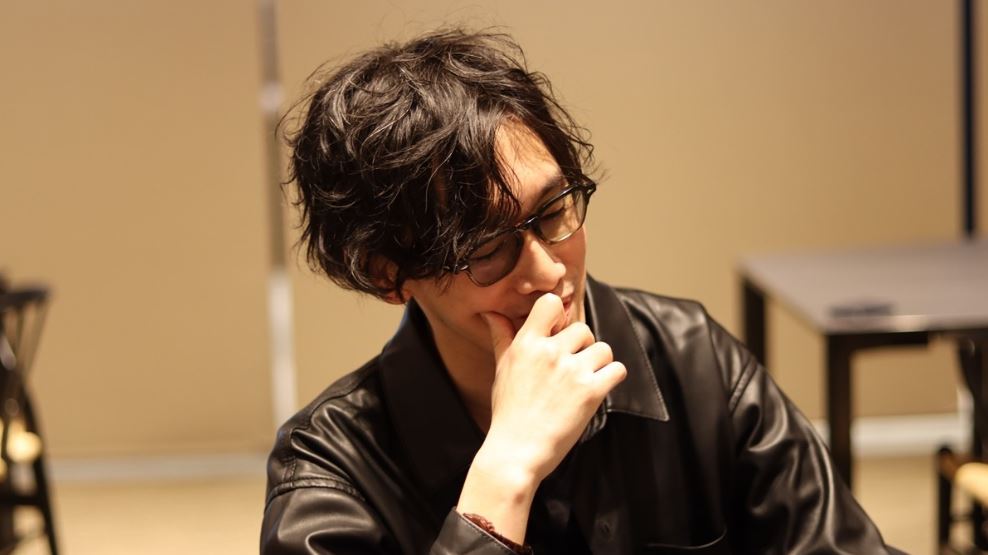
Chiba:
The “density” of a substory’s content makes all the difference in terms of how much work is needed for development.
Horii:
With the scenario members at the helm, the whole planning team comes up with ideas, and we then create scenarios based on all of the adopted pitches. However, if something feels boring, there is basically no chance of it being included in the game, so if a scenario for an approved idea doesn’t turn out right, we go through numerous revisions until we’re satisfied. This means that a single story can go through eight or nine drafts.
Chiba:
If a scenario doesn’t feel right, we often try to think of something anew or or cut stories that are going “astray.”
―I was surprised that the stealth-based mini-game Anaconda Escape in the Anaconda Shopping Mall substory was a one-time-only game. I expected that you would want to use a system like that multiple times after going through the effort of making it.
Horii:
No way! For a tiring game like that, I think once is quite enough (laughs).
Everyone:
(laughs)
Chiba:
We boldly made Anaconda Escape a one-time thing thinking that would better emphasize its beauty. It was actually quite challenging to make, and we’re kind of reflecting on how much time and effort it cost us in terms of adjusting the area of exploration, thinking of the quizzes and passwords, and balancing out the volume of small details. Infinite Wealth also used special controls like dodging cars, so we tried to make those as low-cost as possible.
―By the way, it was you who proposed Sicko Snap, right? (to Horii)
Horii:
Yes, that would be me… Sicko Snap was not something we initially planned to include. Since trolleys are a common sight in Hawaii, we decided to include them in the game as a means of transportation. But, as the trolleys are quite slow and there’s no battles or anything happening along the way, the rides felt kind of boring. That’s why I decided to think of something the player could do while they ride. Eventually, I arrived at the idea of taking pictures, but this raised a question – what the heck should the pictures be of? Initially, we thought of going for dogs.
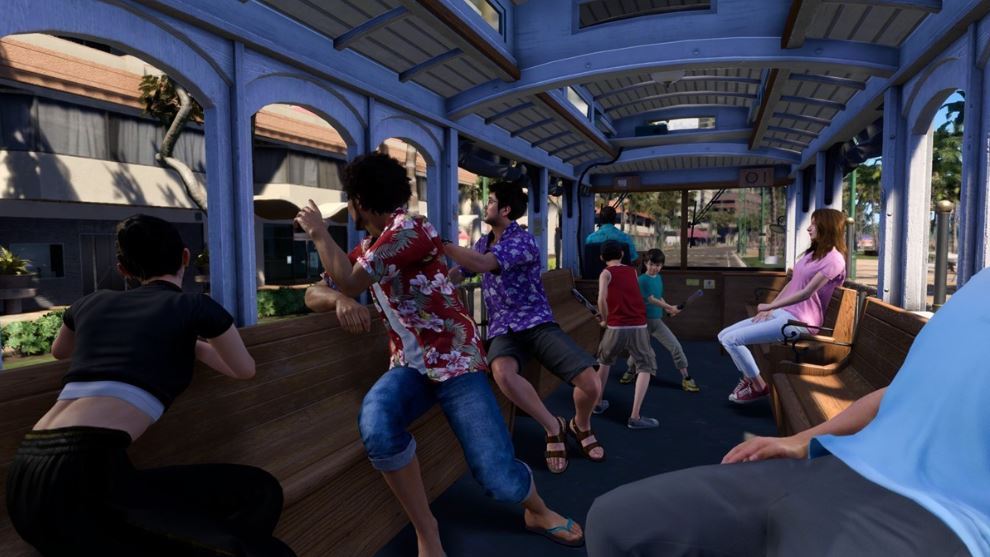
Chiba:
A very inoffensive subject.
Horii:
But then we were like, dogs are kind of…meh.
―What’s wrong with dogs? (laughs)
Chiba:
There’s nothing wrong with dogs, but we weren’t sure if it was the right choice for Infinite Wealth.
Horii:
There was the issue of regular dogs on the map being indistinguishable from dogs placed for the purpose of the minigame, but also, it felt kind of ordinary. There’s no good reason one would take pictures of dogs either. We needed something a little more “out there,” something that would make the player exclaim, ‘Woah! Found one!’ This ultimately led us to introducing the sickos (laughs). When we tried putting in sickos wearing nothing but a pair of panties, they really stood out against the background nicely, and I knew we had found our answer.
―You also found Sickos to be the right answer? (to Chiba)
Chiba:
Yes. I think Sicko Snap is the most logically-sound minigame.
Horii:
It is indeed logical. In terms of drawing out the maximum potential of the trolleys, that was the best solution.
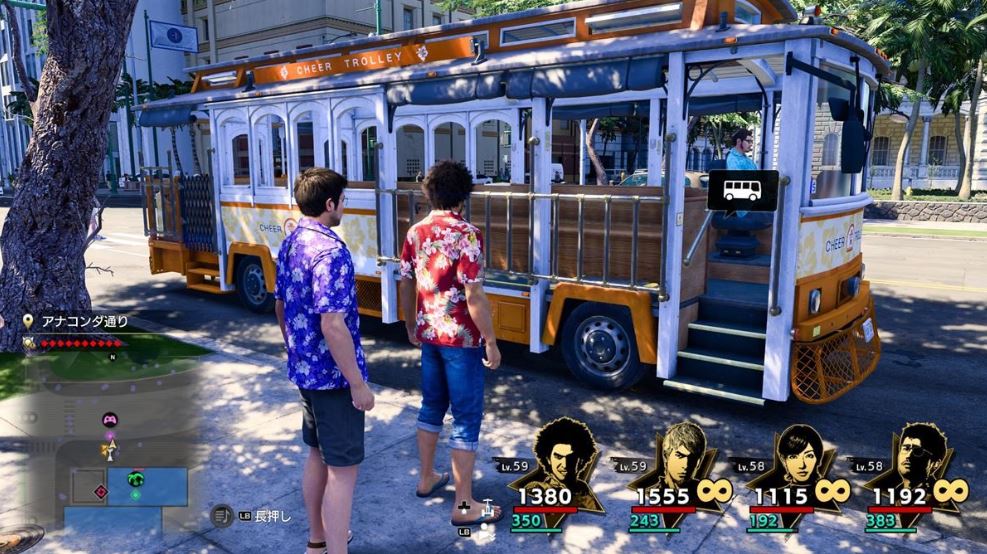
―And that’s how Sicko Snap came to be implemented.
Chiba:
Actually, the first prototype version of Sicko Snap was a bit simpler, but as we worked on it, the team came up with a lot of ideas, such as zooming and panning the camera. In the end, it became a proper game of its own. It really ended up expanding from the initial idea.
Horii:
Everyone kind of ran with the idea while simultaneously asking themselves “What is this” and thinking “This could actually work out.”
Chiba:
We just had a vague conviction that it would turn out great.
Horii:
The team kept increasing the number of Sickos too…
―Now that you mention it, the catalogue of Sickos is quite varied, isn’t it?
Horii:
We made full use of various existing motions and assets. A guy named Koinuma (Akira Koinuma, planner of Infinite Wealth’s adventure elements) was in charge of the project, and he really gave it his all.
Chiba:
He made sure the Sickos came in all kinds of varieties, even with their own little stories.
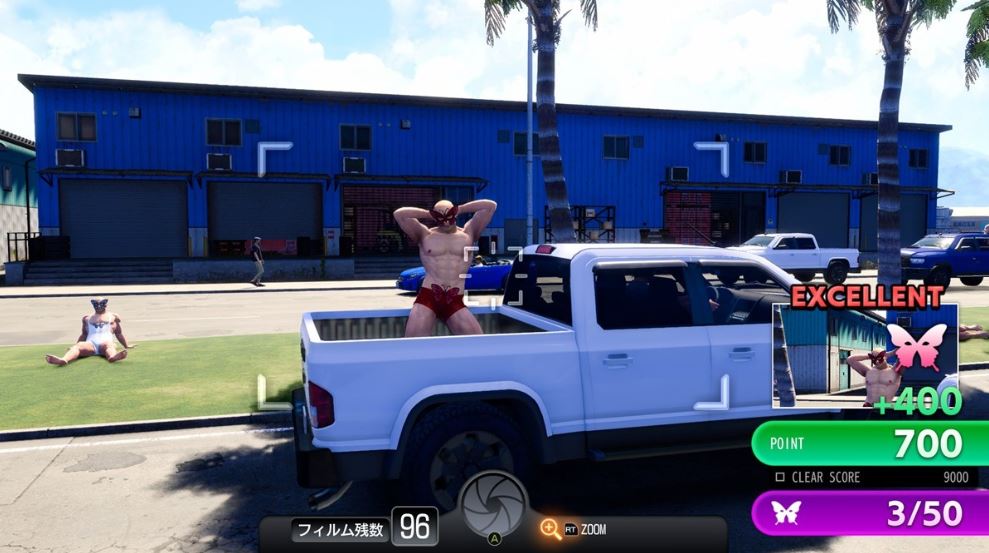
Horii:
It turned out to be such a good minigame, and I’m really happy with it. Although, when I first presented it to the producers, they were like “What the hell is this?” (laughs).
Chiba:
I remember that well (laughs).
Horii:
As I mentioned earlier, Sicko Snap was not originally planned, as opposed to minigames like Crazy Delivery and Dondoko Island, which were a part of the original proposal. Sicko Snap was the result of our attempts to solve a problem that arose during development.
Chiba:
It was like a by-product. Even the term “Sicko Snap” didn’t exist anywhere before that.
―I feel like it’s the kind of content you get when the development team working “on the field” takes the initiative (as opposed to the producers’ side).
Horii:
We were confident it would succeed if implemented, and we knew we had sound reasoning for it, which is why we made the decision among ourselves.
Chiba:
And it kept escalating from there…
―From our conversation so far, I get the impression that a lot of stuff gets decided on the spot, but do you ever encounter disapproval the producers?
Horii:
For Infinite Wealth, there was almost no disapproval. I have been working with Yokoyama and Sakamoto for a long time, and we have similar tastes and are wary about the same things. In addition, I tend to think about the games from the producer’s point of view myself, so we’re on the same page most of the time. If I am not sure about something or if it depends on intuition, I feel free to consult directly with the producers. I think we have a very good relationship because they put a lot of trust in us and leave me with a lot of leeway to direct the games.
―Were there any changes made to the game based on opinions that came from outside of the development team?
Horii:
We sometimes give mid-development ROMs to people outside of the development team, such as Sega’s internal QA team (a quality assurance team that evaluates entertainment value and other aspects), the overseas teams, and marketing teams to get their opinions and feedback. Of course, we do not incorporate all of their feedback as is, but we do adopt the opinions that resonate with us.
―Was there anything in Infinite Wealth that you changed based on this external feedback?
Horii:
The biggest thing was increasing the number of taxis.
Chiba:
Oh yeah, I remember receiving passionate feedback about how important mobility is nowadays.
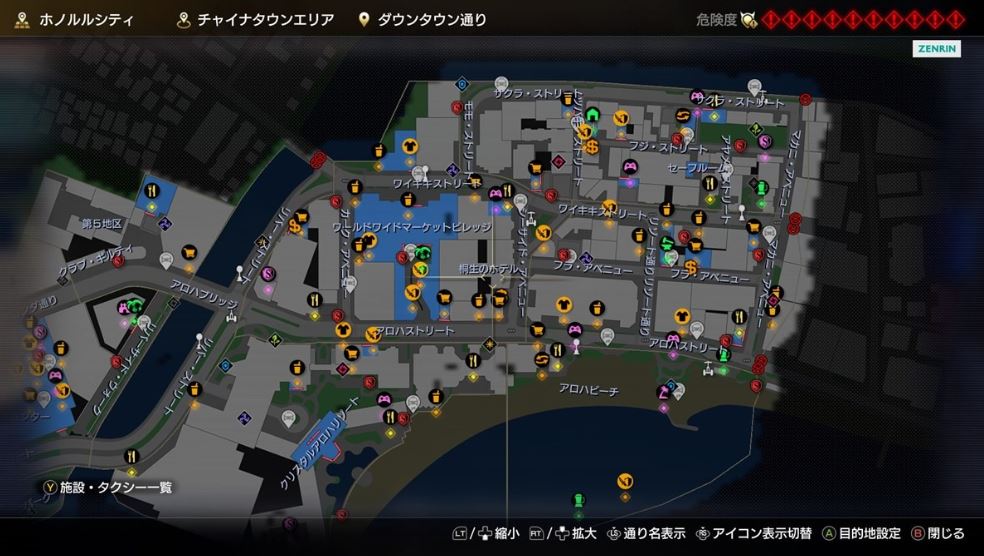
Horii:
I have to admit that, from a developer’s point of view, there are negative aspects to increasing the number of taxis. It shortens the life of the game and makes it harder to get people to play what the city has to offer. However, we were told that if we don’t let players go to various locations by taxi, it could negatively affect reviews and all that (laughs).
Everyone:
(laughs)
Horii:
The QA team in particular has a good grasp on these kinds of trends, so when we receive feedback from them, we take it seriously. If it’s something we agree with, we adopt it. However, we don’t make changes that don’t align with our philosophy. We always collect a wide range of opinions, but the final call remains ours alone.
Miss Match and Bar Chat – the minigames that had the team at a loss
―Was there any minigame or piece of content you’ve developed so far that was particularly challenging for you as planners? In terms of both Infinite Wealth and the Like a Dragon series as a whole.
Horii:
In terms of Infinite Wealth, it would be Miss Match.
Chiba:
Oh, definitely…
―Oh, that’s another minigame that’s become representative of Infinite Wealth.
Horii:
We had planned from the very beginning of the project to create Miss Match, a minigame that reflected all the well-known pitfalls of dating apps. However, when I was actually faced with making a game that felt like a dating app, it was a lot more difficult than I had imagined. The initial game design was very different from what the game looks like today.
Chiba:
There were all kinds of ideas at the time – from having the player roll dice, to swapping out Ichiban and making the game about Adachi seeking a partner to marry.
Horii:
For a time, we were quite lost. But then, we arrived at the idea of having only 3 out of 10 possible matches be “the real thing,” while the rest of the girls turn out to be catfishers. This is when I knew we were on to something.
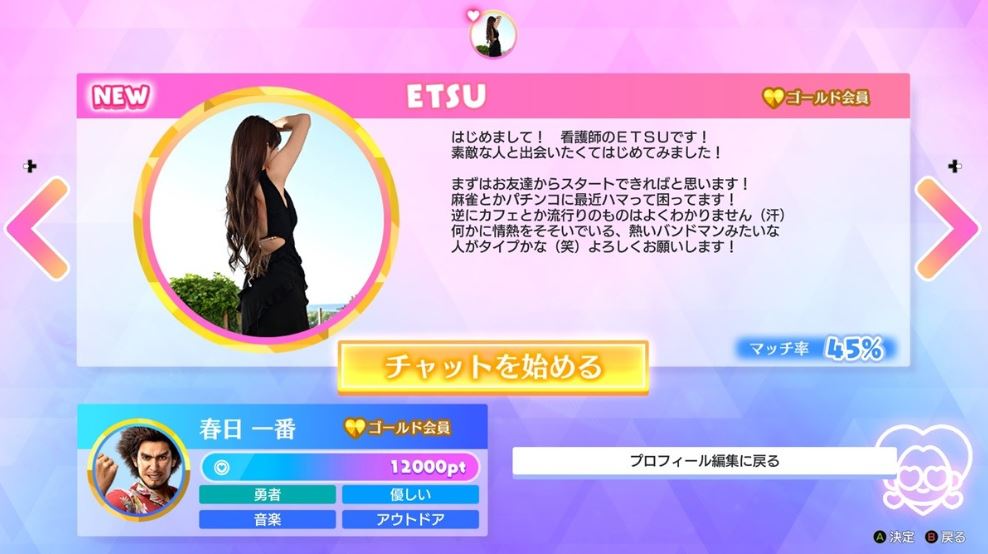
Chiba:
Looking at the whole series, Yakuza 6’s Bar Chat minigame was quite the challenge for me. The game consists of Kiryu visiting a small-town bar and gradually becoming friends with its regulars. But when you think about it, the concept of this minigame is extremely vague. Like, what does it mean to gradually befriend someone?
―It does feel kind of vague, now that you mention it.
Chiba:
What does it mean to fit in at a bar? I remember having a lot of trouble figuring out what the player is supposed to do to make friends with the locals. I consulted with Horii, who was the main planner at the time, and we decided to portray Kiryu getting along with the people through conversations and minigames. However, the minigames were also difficult to decide on. Ultimately, we held a team meeting to ponder the future of the bar, where we thought of having Kiryu connect with people by replying with the correct dialogue options, and that’s the approach we went for in the end.
―Looking back on it, do you feel like you should have refined the base concept of Bar Chat more before starting development?
Chiba:
At first, I did think the concept was too vague, but afterwards, I realized that this also meant I had a lot of freedom. While thinking of a solution to this open question, I arrived at a way to make the game more entertaining using Kiryu’s character. This contributed to the game’s value and resulted in a fun piece of content, which I was very happy about. I think Bar Chat made me grow as a creator.
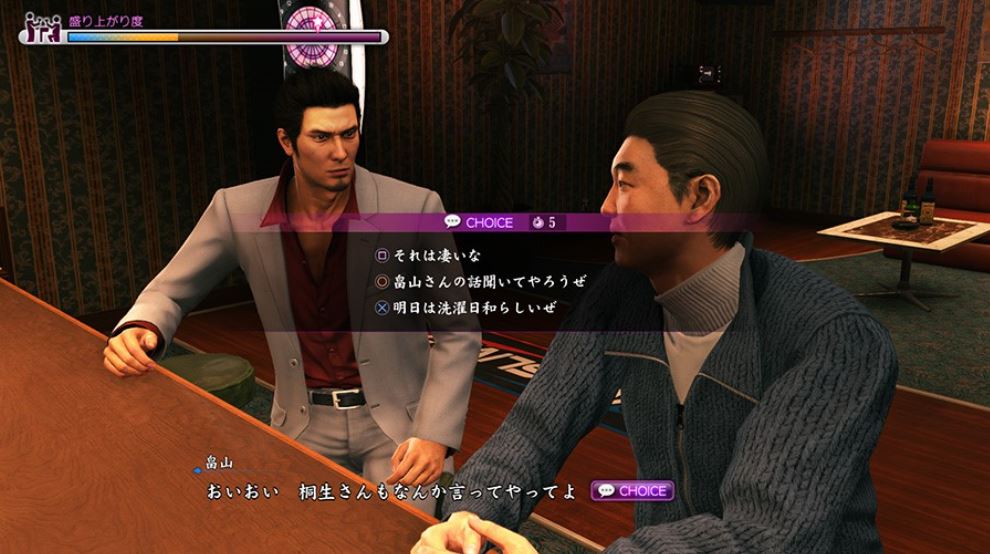
RGG Studio has an expert for writing “pointless chit-chat”
―I understand that Chiba wrote much of the text for Infinite Wealth’s Party Chats. How do you split work between the scenario team and the rest of the planning team?
Horii:
In principle, we leave the main story to the scenario team, while the rest is done mostly by the planning team.
Chiba:
Who’s in charge is basically decided depending on whether it’s related to the main story or not. Everything outside of the main story is written by the planners and me. Sometimes, the director will directly add to the substories when something from the main story needs to be supplemented.
Horii:
We have a pretty good division of labor in that sense. After all, the scenario team is the best at setting up the story, so we leave it to them.
―Drink Links (character-specific events that occur when your Bond Level with a character other than Ichiban or Kiryu rises) are often deeply connected with the character’s identities, so do you work on these together with the scenario writers?
Horii:
Since Drink Links are closely related to the character settings, we often give the scenario team an overall idea of what kind of conversation we want to depict and have them take charge from there. Many of the Drink Links dig deep into the character’s past, so if we show something that contradicts the original setting, it can cause problems later on. That’s why we have detailed discussions to solidify each story. On the other hand, for things like Party Chats and Table Talks, we don’t get the scenario team involved. These light conversations are handled by Chiba and his team.
―With the introduction of Party Chats, Table Talks and all that, I got the impression that the amount of text in the games from Yakuza: Like a Dragon onwards increased compared to Yakuza 6, but is it really so?
Horii and Chiba:
It has increased immensely.
Horii:
Not only is there loads of texts, but there are multiple party members whose voice lines need to be recorded, whereas before we only had to worry about the single protagonist.
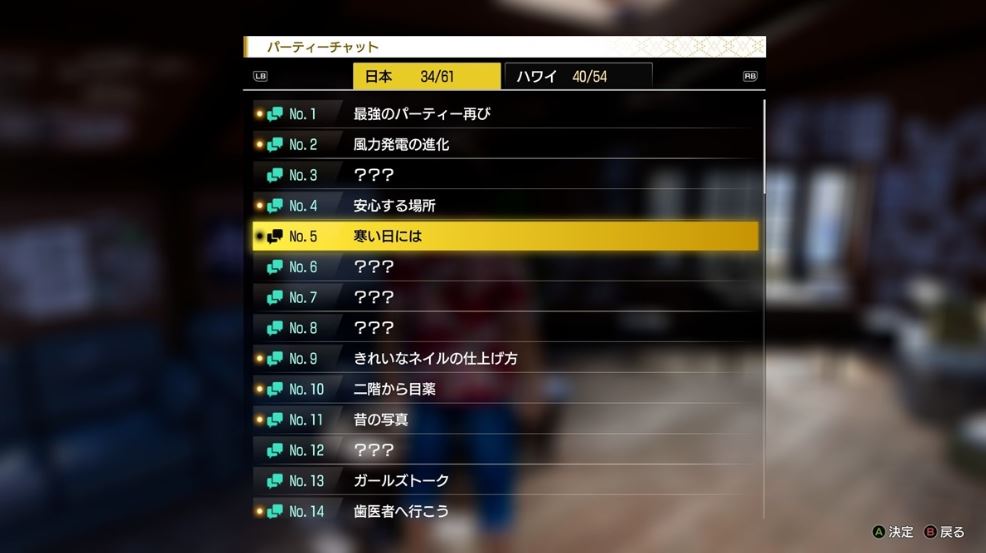
Chiba:
With 10 party members having their own respective fully voiced conversations, the sheer volume is incredible.
―By the way, are there more Party Chats or Table Talks?
Chiba:
I think that in total, Party Chats overwhelmingly outnumber Table Talks.
Horii:
About a hundred, perhaps?
Chiba:
In terms of Infinite Wealth, if we include Walk & Talks, there should be a little bit over 200…These are not normal numbers.
―And most of these are written by you? (to Chiba)
Chiba:
In principle, yes. I also look over any proposals submitted by other members and adjust them.
Horii:
We needed a good number of Party Chats and Table Talks as a means to “fill up” the city, so we asked everyone on the team to participate in coming up with ideas. From there, we selected the best ones and had Chiba edit them or use them as is, while also creating new stories from scratch to make up for what was missing.
―From what I’ve seen, players seem to be quite happy with Party Chats, but what are your thoughts on them?
Chiba:
I think the system did a very good job of conveying details about the characters, such as their interests and quirks, that can’t be conveyed through the main story alone. I think this made players genuinely feel closer to the characters. Also, although most of the chit-chat is basically inconsequential to the game, when you look at real life, it’s not only through big and dramatic events that people become close to each other.
―That’s true.
Chiba:
I think that having people become close and develop bonds simply by chatting in the city actually made the main story feel more convincing, in terms of scenes where the characters fight together while protecting and supporting each other.
―It does help show another side to the characters.
Chiba:
Yes, I think this helped us portray characters like Seonhee in an interesting way. Also, we were able to bring out Joongi Han’s goofier side. I think the details we added to his character showed a surprisingly funny side of him, which made him even more lovable.
―Did you used to study scenario writing? (to Chiba)
Chiba:
No, not at all. About the Bar Chat minigame I mentioned earlier – the content basically revolved around completely trivial conversations between middle-aged guys, and I think that’s what helped me realize that I might have a knack for writing pointless chit-chat.
Horii:
Chiba is a total genius for pointless conversations.
Everyone:
(laughs)
Chiba:
I’m hoping you mean that in a good way (laughs). That said, I have been creating substories for a long time now, so I’ve kind of trained myself in terms of how to make conversations flow and how to construct a story, and I think this ability meshed well with Yakuza: Like a Dragon’s shift to the RPG genre.
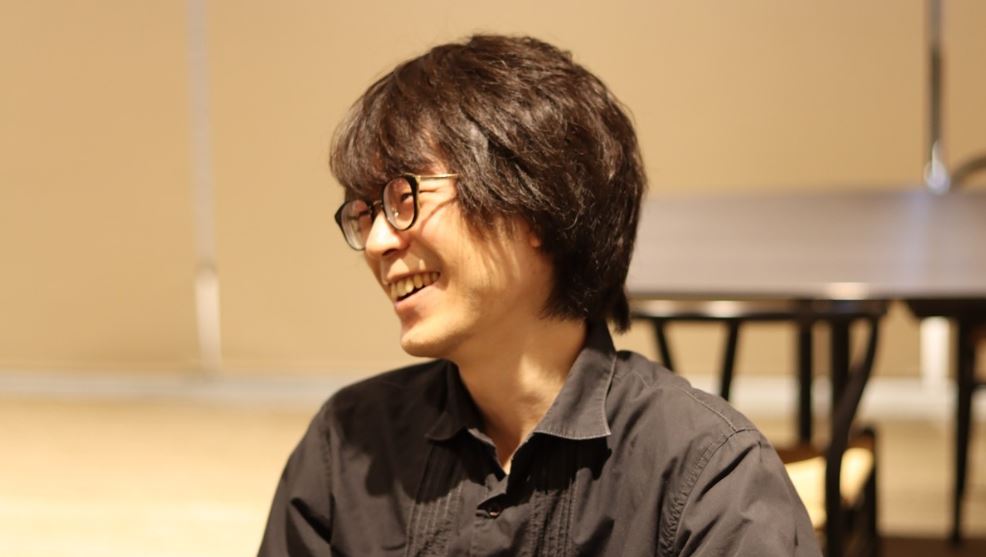
―How well you portray the characters becomes key, after all.
Chiba:
That’s right. With the game becoming an RPG, the number of allies you make has increased, and it’s a much more character-driven experience than before. However, there are a lot of details related to the characters’ personalities that you can’t depict in the main story, which is why I’m pleased we found a way to give the player a deeper insight into the characters just through walking around the city.
―The Party Chats and substories have a kind of “middle-aged guy flavor” to them, but what demographic did you have in mind while working on them?
Horii:
Ah well… we are middle-aged guys ourselves…so I guess that’s the kind of target audience we’re going for, probably.
Everyone:
(laughs)
Chiba:
The characters having the conversations are mostly middle-aged guys too, so we don’t really end up with dialogue that brims with youthfulness.
Horii:
But I think that this is precisely one of Like a Dragon’s selling points. In Yakuza: Like a Dragon, everything starts with three unemployed middle-aged guys being like “Let’s go to Hello Work.” They have a different air about them than a group of young heroes would, complaining about back pain and the like. But this “humanity” you feel from their age is what gives the game originality. When we go to a drinking party with our younger team members, we get exhausted, but we have no trouble chilling out with other older guys in a bar. I think something similar to that can be felt in the games.
Chiba:
I think so too (laughs). The same can be said about the topics we choose. For example, there’s a conversation where Adachi is conflicted about whether he should drink beer or not because he’s worried about his uric acid level. We’re making the hearty talks of middle-aged dudes our identity, rather than youthfulness.
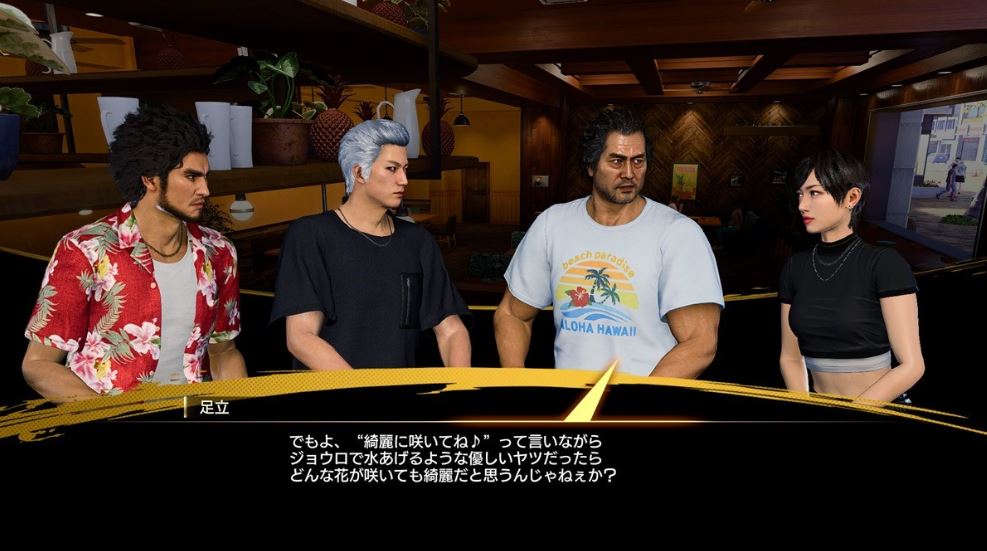
Horii:
The characters are flesh-and-blood human beings much like our players are, so their problems are relatable. That’s why it’s easy to really get into the game and feel like you’re listening to conversations between ordinary people. There isn’t any typical “game-like” language like “where is the treasure chest?” Perhaps it’s better to just talk about things like your uric acid level without getting riled up.
―I personally really enjoyed reading the Party Chats, but now I realize that they probably reverberated with me because I’m a middle-aged guy myself, I’m not sure how to feel.
Everyone:
(laughs)
Chiba:
In Infinite Wealth, Chitose appears as a younger character, so I had a lot of fun writing the “chemical reactions” that happen to Adachi whenever she gets involved.
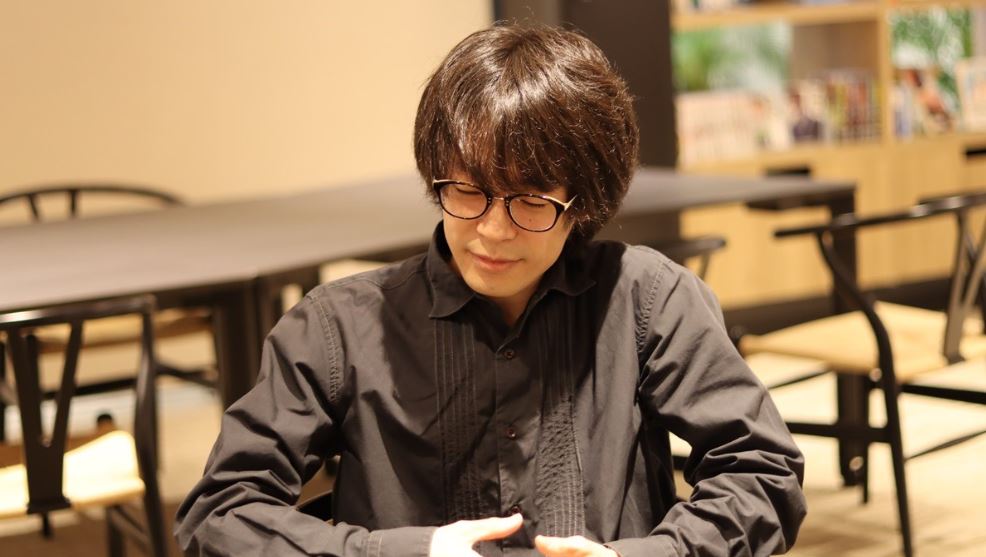
Horii:
Chitose doesn’t care about uric acid levels, after all.
Chiba:
Yeah, that’s why she brings something new to the conversation, with her ice-cold responses.
―Now that you mention it, there were definitely some Party Chats that just ended with Chitose being completely disgusted.
Chiba:
Yes, the ones that just kind of end abruptly (laughs). I had fun writing those as well.
Like a Dragon will stay true to its uric acid level banter
―When visiting recent Like a Dragon events, I’ve noticed the series has gained quite a lot of female fans. Did you consciously aim to attract women to the series in some way?
Horii and Chiba:
Not at all.
Chiba:
I’m very grateful that women find it enjoyable, but also surprised.
Horii:
I don’t understand how they can enjoy it, with the talk of uric acid levels and all.
Everyone:
(laughs)
Horii:
On a serious note, we have had a large increase in new fans, including women, which we’re truly happy and grateful for. However, we don’t plan to do anything like deliberately changing conversation topics in order to cater to new fans. That would make us unable to keep talking about uric acid levels…(laughs)
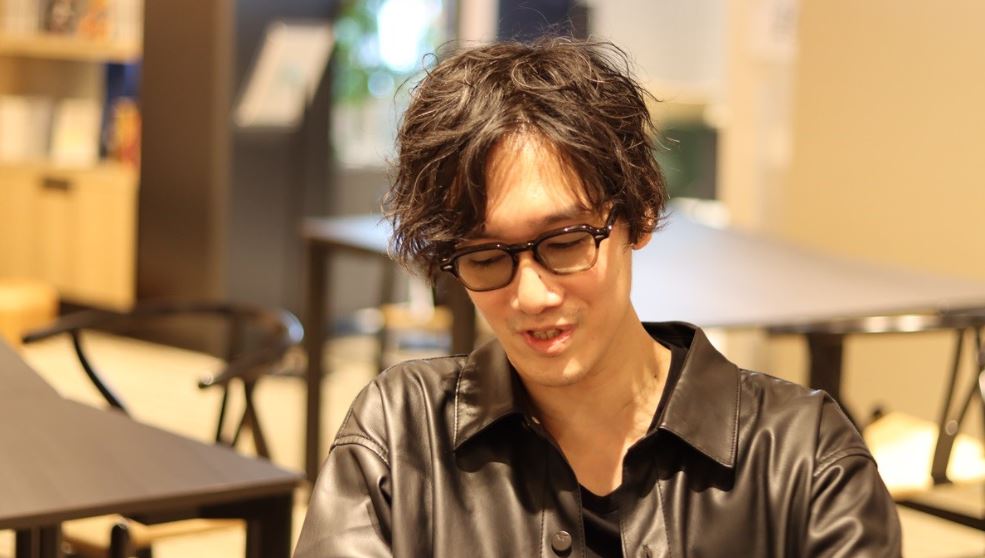
Chiba:
Yes, we don’t plan to cater on purpose. There’s a Party Chat where Seonhee and Saeko’s girl talk gets hijacked by Nanba and ends up turning into guy talk. I think situations like these will keep happening.
―So, Like a Dragon will stay true to its original flavor.
Horii:
Yes, our policy as creators has not changed. We are very grateful for the recognition we have received from overseas fans and new, younger players, but we will not change our policy of creating games based on our personal ideas of what’s fun.
―Thank you for your time!
Like a Dragon: Infinite Wealth is available for the PC (Steam), PS4/PS5 and Xbox One/Xbox Series X|S.
[Writer, editor: Koutaro Sato]
[Interviewer, editor: Ayuo Kawase]
[Support: Nobuaki Shibuya]
[Translator: Amber V]

